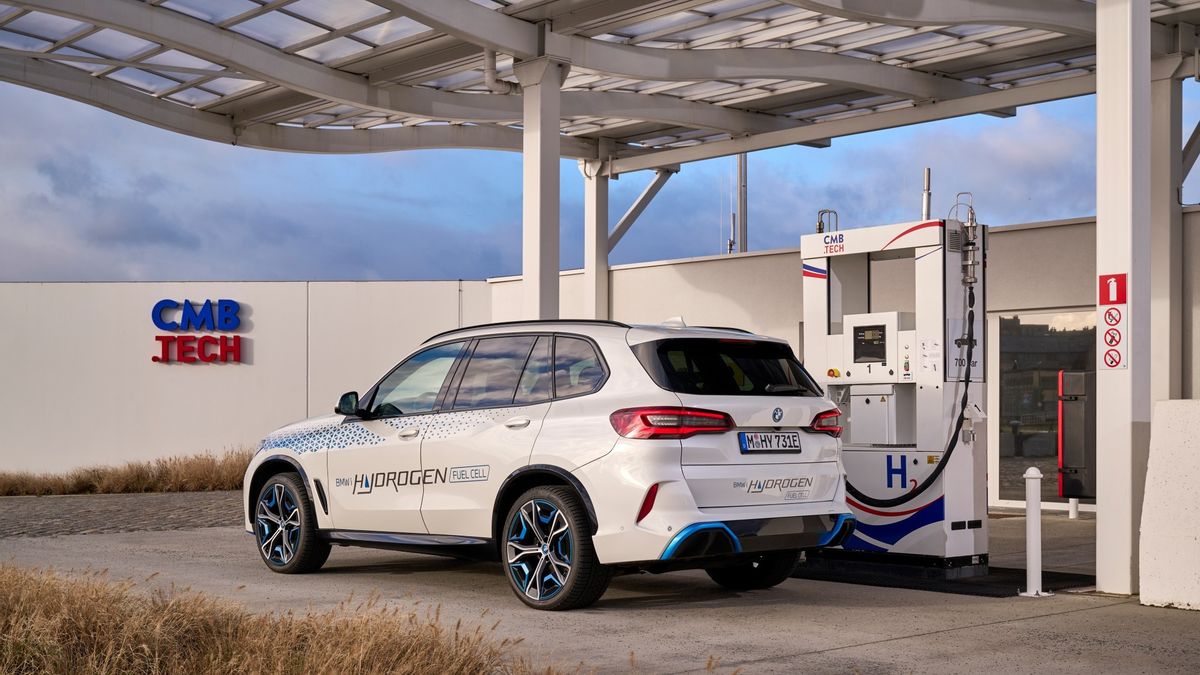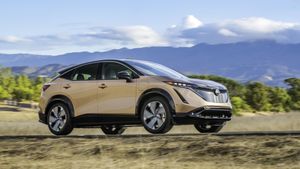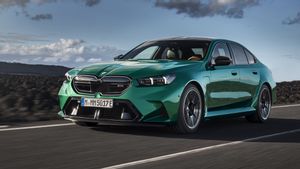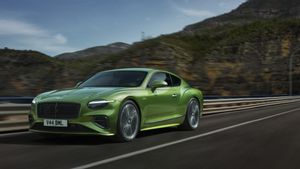JAKARTA - BMW is one of the manufacturers that has helped develop hydrogen-fueled vehicles (FCEV). The BMW iX5 Hydrogen is one proof of the brand's commitment to sustainable energy.
Despite being one of the pioneers in the development of the FCEV, BMW insists that this segment is not designed to replace the Battery Electric Vehicle (BEV) and both are created to co-exist in environmentally friendly mobility.
General Manager of Hydrogen Technology BMW Group, Dr. Juergen Guldner, said these two innovations were created to complement each other because BEV and FCEV can meet users' different needs.
"We don't see it as a competition between the two technologies," Guldner said as quoted by Drive, Wednesday, June 26.
Guldner said hydrogen fuel cell vehicles would be suitable for buyers who could not charge EV cars overnight at home and had to travel long distances efficiently.
"No one thinks that gasoline and diesel compete with each other. Everyone has different preferences," added Guldner.
Despite having different preferences, he added that buyers have environmentally friendly awareness and that EVs can bridge this towards decarbonization.
"What we all want is decarbonization and basically saving our planet," added Guldner.
SEE ALSO:
BMW has a FCEV model called iX5 Hydrogen which was introduced in February. The car is based on the X5 model of gasoline engines launched in 2019.
In the car development process, BMW partnered with Japanese hydrogen car pioneer Toyota. Both companies have invested in hydrogen charging technology for a number of vehicles.
The highly efficient fuel cell system, equipped with two tanks of hydrogen, electric motors, and power batteries, collaborates with the central vehicle control unit to demonstrate outstanding performance and readiness.
The SUV is also used as a fleet to operate in various regions, including Europe, Japan, Korea, China, the US, and the Middle East. One of BMW's goals is to introduce iX5 Hydrogen in various countries to support the development of 700-bar standard hydrogen refueling infrastructure for all types of vehicles.
Cross-sectoral collaboration also opens up important opportunities to develop a strong supply network in hydrogen technology and reduce related costs.
BMW iX5 Hydrogen claims to have a range of up to 504 kilometers with one refueling, allowing the use of this car for long-distance travel without worrying about running out of power.
In addition, this car has a relatively fast charging time, it only takes about 3-4 minutes to fully fill the hydrogen tank.
This hydrogen-powered SUV is powered by a BMW eDrive system, which includes electric motors, transmissions, and power electronics components, as well as a fuel cell system that produces a total power of 401 dk.
The English, Chinese, Japanese, Arabic, and French versions are automatically generated by the AI. So there may still be inaccuracies in translating, please always see Indonesian as our main language. (system supported by DigitalSiber.id)










